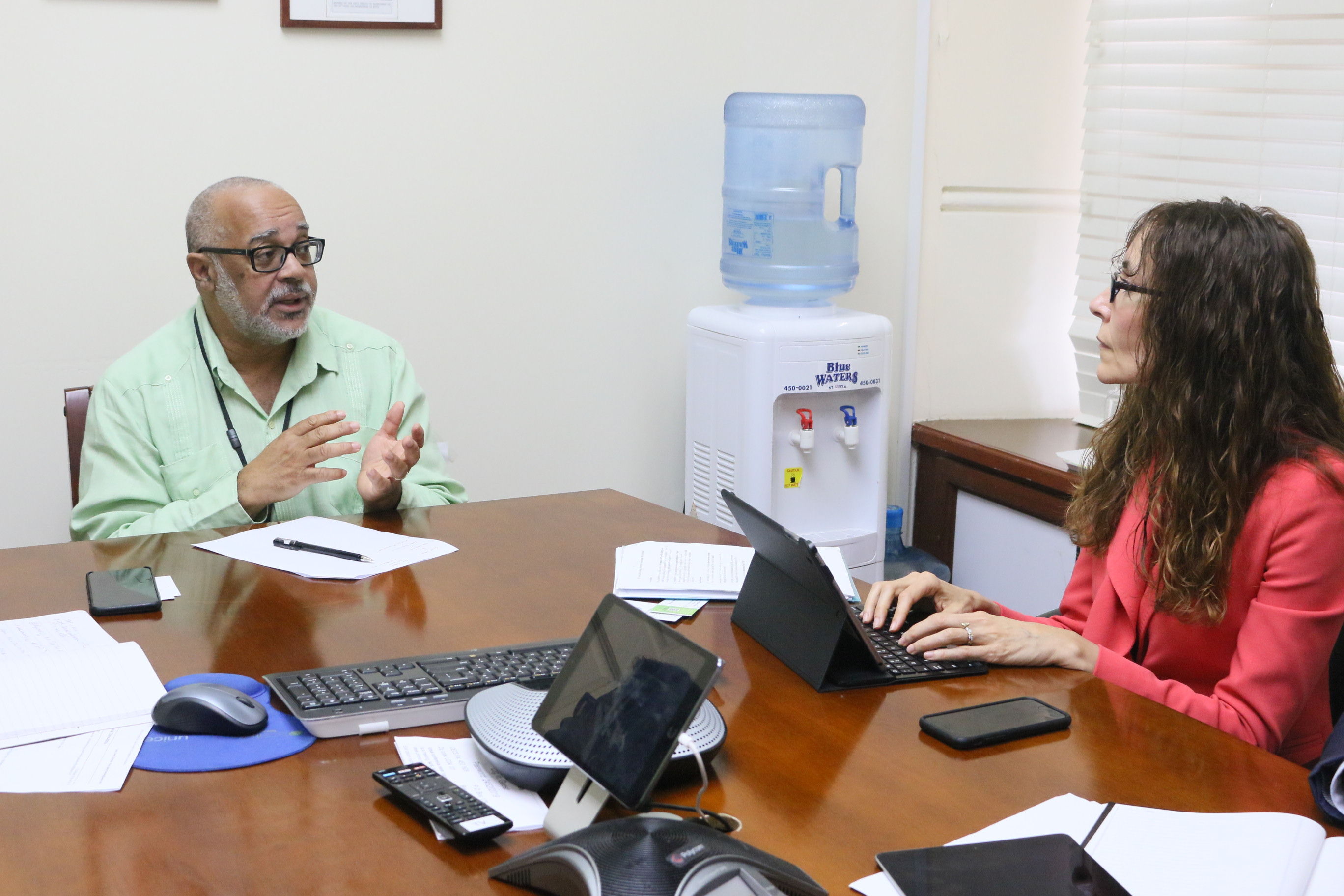IMF Representatives Pay Courtesy Visit to the OECS Commission
OECS Media Release
Two representatives from the International Monetary Fund (IMF), Division Chief, Caribbean Western Hemisphere Department, Sonia Muñoz; and Senior Economist and Mission Chief, Grenada Western Hemisphere Department, Bodgan Lissovolik, paid a courtesy visit to the Director General of the OECS, H.E. Dr. Didacus Jules on November 18, 2019.
In the main, the Director General of the OECS apprised the representatives from the IMF of multiple innovative actions currently being undertaken by the Organisation to strengthen and accelerate economic growth at the regional level through the mobilisation of alternative financial resources.
Dr. Jules also expressed his long-term views on the financing of the OECS integration effort.
“We are currently changing the dynamic of our approach to mobilise resources. We are determined to strategically utilise our assets in a way that changes our economic DNA, so that we do things in a more sustainable, cost effective and efficient manner,” Dr. Jules said.
Hence, the meeting focused on 10 matters, inter alia:
-
the mobilisation of financial resources to support economies of the OECS Member States which have been impacted by hurricane Maria;
-
the work accomplished by the financial and economic development bodies of the Organisation, and the collaboration between the Eastern Caribbean Central Bank and the Economic Affairs Council of the OECS;
-
the harmonisation of Citizenship By Investment (CBI) Programmes of multiple OECS Member States in order to converge towards a regional approach;
-
the creation of an emergency resilience fund in the event of natural disasters;
-
the mobilisation of local financial resources and the banking union;
-
the development of a diasporic investment regime at the regional level which aims to facilitate financial flows coming from the OECS Nationals who reside overseas, and which contribute to the economic development of their home countries;
-
the revitalisation of the OECS stock market;
-
the shareholding model of LIAT;
-
fiscal policies and tax incentives to foster intra-regional trade; and
-
the development of digital currencies in the OECS space.
In closing, the Director General of the OECS highlighted the importance of a closer collaboration between both entities, especially in light of the publication of reports which provide an analysis of the economies of the OECS Member States.
Dr. Jules also indicated that these matters will be further discussed with the Heads of Governments of the OECS and ratified at the next OECS Authority meeting which should be held by the first quarter of 2020.
About the International Monetary Fund
The International Monetary Fund (IMF) is an organisation of 189 countries, working to foster global monetary cooperation, secure financial stability, facilitate international trade, promote high employment and sustainable economic growth, and reduce poverty around the world.
Created in 1945, the IMF is governed by and accountable to the 189 countries that make up its near-global membership.
The IMF’s fundamental mission is to ensure the stability of the international monetary system.
The entity does so in three ways: keeping track of the global economy and the economies of member countries; lending to countries with balance of payments difficulties; and giving practical help to members.



